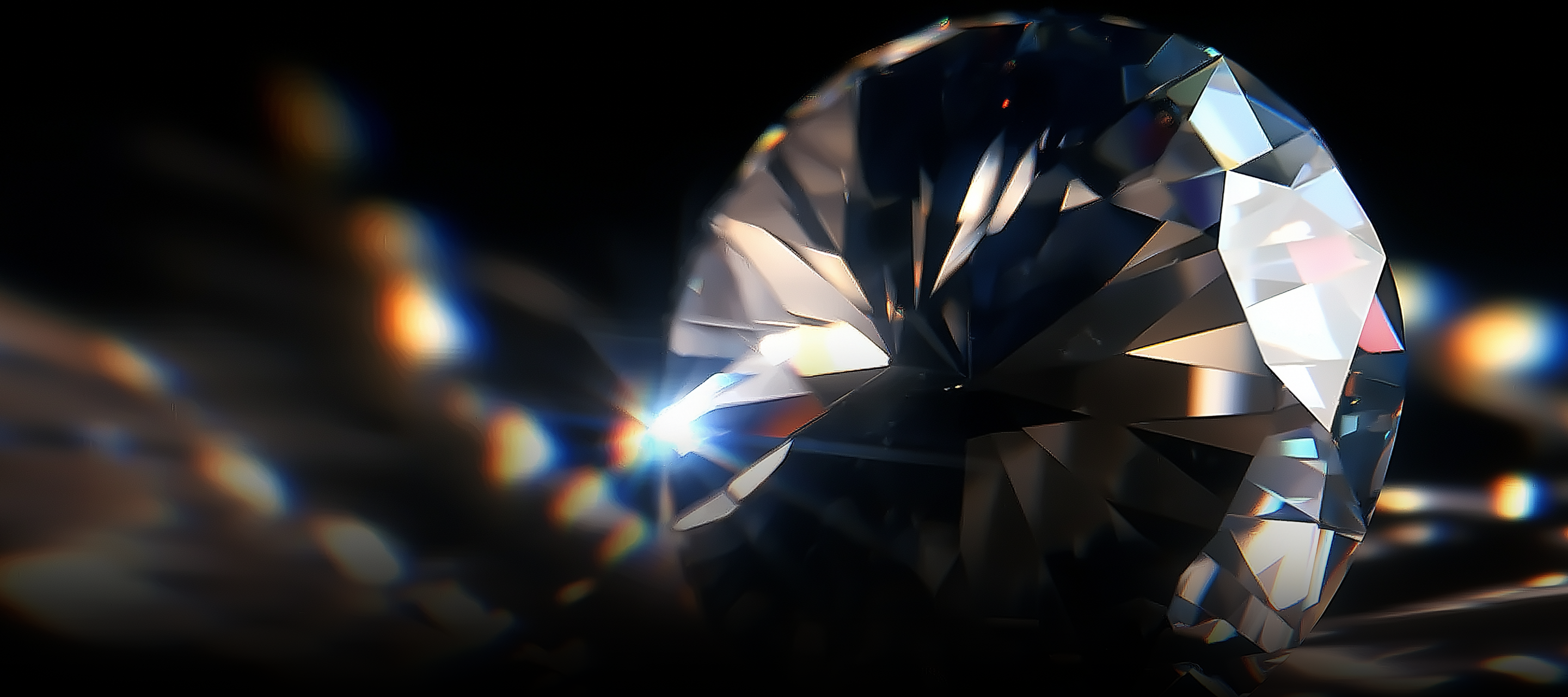In recent years, fashion-conscious shoppers and streetwear enthusiasts have increasingly debated whether lab-grown moissanite or natural diamonds offer more brilliance in everyday wear and statement pieces. This discussion has fueled a surge of interest in moissanite jewelry, as buyers weigh factors like sparkle, durability, ethics, and price. Below we will break down moissanite and diamond side-by-side on these key dimensions.
Optical Performance (Fire & Brilliance)
Moissanite is renowned for its dazzling sparkle. It has a higher refractive index (about 2.64–2.69) than diamond (~2.42), meaning moissanite bends and reflects more light. In fact, gem experts note that moissanite typically shows more than twice the fire of a comparable diamond. This results in extra colorful flashes of light, especially in larger stones. By contrast, natural diamonds display mostly white brilliance and about half as much dispersion.
In practical terms, a 1-carat moissanite can look just as sparkly, or even flashier than a 1-carat diamond. Some wearers prefer the pure white shimmer of diamonds, while others love moissanite’s lively, bold sparkle. Regardless, both gems are famed for their brilliance: moissanite edges out diamond on sheer flashiness (high RI and dispersion), though diamond’s sparkle remains classic and refined.
-
Moissanite: Refractive index ≈ 2.65; extremely high brilliance and more than twice the fire of diamond
-
Refractive index ≈ 2.42; stunning “white” brilliance but about half the fire of moissanite
Durability & Everyday Wear
Both moissanite and diamonds are very hard gemstones, making them suitable for everyday jewelry. Diamond is the hardest natural substance (Mohs hardness 10), while moissanite scores about 9.25 on the Mohs scale. In practice this means diamond is slightly more resistant to scratches. But moissanite is still extremely tough. It stands as the second-hardest gemstone used in jewelry.
An interesting difference is that moissanite lacks a cleavage plane (an internal weakness), whereas diamond has natural cleavage lines. Because of this, moissanite can actually be more resistant to certain types of chipping. In other words, a hard impact that might split a diamond along its cleavage plane would be less likely to split moissanite.
On the other hand, some tests show that diamond can withstand roughly twice the pressure of moissanite before breaking. In real-world terms, however, both gems are rugged enough for daily wear. Rings, necklaces, and earrings made of either will last a lifetime with normal use.
Ethical & Environmental Considerations
Moissanite is lab-grown, meaning no mining, no conflict, no problem. It’s the go-to for anyone who wants to wear their shine without second guessing the impact. Natural diamonds have that old-school prestige, but not all of them come with clean sourcing. If you care about what your jewelry says beyond style, moissanite sends the right message.
The Real Value: Flex With No Stress
Here’s where moissanite really shines—you get serious size and brilliance for a fraction of the diamond price. Why drop thousands on a single stone when you can go bold for less? Whether it’s a moissanite chain stacked with drip or a custom moissanite pendant built to your specs, you're getting high-end looks without the luxury markup.
 Moissanite Jewelry Is the Move
Moissanite Jewelry Is the Move
If you're looking for brilliance, durability, ethical shine, and major value, moissanite jewelry is where it's at.
At Aporro, we don’t just follow trends—we help define them. Our moissanite jewelry is crafted with the streetwear and hip hop community in mind. From fully iced-out moissanite chains to detailed custom moissanite pendants, every piece is built for standout impact.
We use VVS-grade moissanite stones, solid 925 silver or premium 14K/18K gold, and hand-set craftsmanship to make sure your shine speaks volumes. Plus, our custom design service lets you build something 100% you. No copies, no limits, just your vision in full bling. Visit now and get your moissanite pieces.




Share:
Jewelry Gift for the Holidays: A Complete Guide
Jewelry 101: How to Design Your Perfect One-of-a-Kind Piece